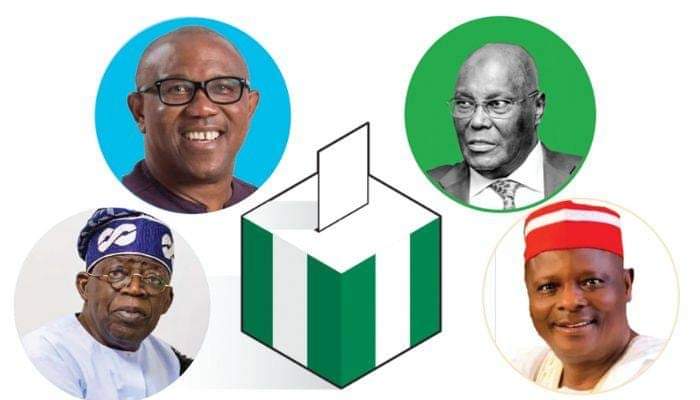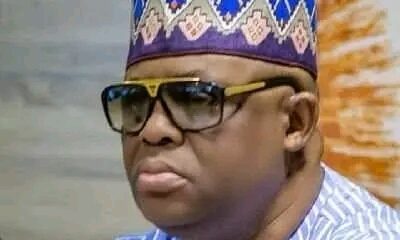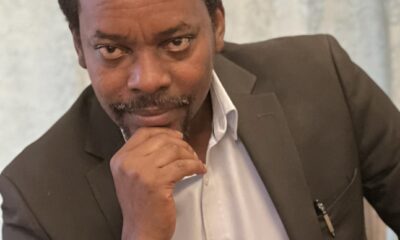Democracy & Governance
2013: Nigeria Requires Visionary Leadership -By Isaac Asabor
Without any iota of exaggeration, the visionaries we require are the type of people who have the ability to not only think of solutions to our nation’s problems but who also have the capacity to put pragmatic solutions into practice.

There is no denying the fact that more than ever before that Nigeria needs a crop of visionary leaders come, 2023. In fact, the crop of leaders that not a few Nigerians are expecting to run the political and economic affairs of the country from 2023, preferably after the conclusion of the upcoming general and presidential elections, will be those that have the collective vision to bring the required solutions to deal with the country’s nagging problems.
The reason for the foregoing cannot be farfetched as the challenges which Nigerians have been passing through since the country adopted a democratic system of government in 1999 are undoubtedly been caused by lack of visionary leaders. In fact, building a better Nigeria from 2023 onwards requires visionary political leadership that would challenge entrenched political interests and push policy imagination beyond business as usual.
Shorn of hyperbole, Nigerians are yet to see visionary leaders who combined political astuteness, economic sense, and people outreach with great verve. Nigerians need leaders who can dig deep imprints in the nation’s fabric, and would be seen to be approachable and empathetic people whose interests cut across a wide variety of areas, be it intellectual discussions, sports, law, economy, or food.
Over the past decades, numerous resources have been squandered by not a few political leaders that are wont to arrogate power to themselves, and arrogantly think that it is their turn to lead by each passing political dispensation, while the not a few Nigerians, who have very good ideas, are seldom given any attention or opportunity for development. In fact, there has never been a genuine focus on developing human resources regardless of their situation. The real focus has been on power for self and making a profit. Shamefully enough, the retrogressive trend has now taken an “Emilokan” trajectory.
For the sake of clarity, a vision is a function of the heart. God puts in the heart of the visionary what He wants them to build. A visionary is a builder and must-see ahead in order to build for what is ahead. A visionary leader is at any point in time cognizant of the fact that there will always be problems ahead, but he or she puts the necessary structure in place to deal with whatever problems arise.
Lately, the meanings of the terms ‘sight’ and ‘vision’ are being confused by many. Sight is a function of the eyes, but vision is a function of the heart. In fact, vision goes beyond sight. It sees in the future, builds for the future, and deals with potential issues.
It is not an exaggeration to say that since Nigeria adopted a democratic system of government in 1999 that Nigerians have been seeing sight-oriented leaders, not visionaries. This is why we have the challenges of insecurity, unemployment, a shamble economy, and a rising debt problem. Paradoxically, they allegedly created the problem and then turn around to try to solve the problem they allegedly created and unashamedly call themselves geniuses during electioneering.
In fact, the kind of leadership Nigeria needs from 2023 is the one that constitutes visionaries and builders needed to rebuild the economy with the right materials; leaders that will see ahead.
Most politicians select people to win an election, but they do not select visionaries and builders, as a result, the instability has continued.
In fact, visionaries do not try to recapture the past, they deal with the future. Visionaries build to weather the storms and global issues.
A vision is such that if you try to bury it, it will only come back up again. A vision must be long-term, not short-term, even when there is no funding for the vision, it will still speak for itself.
Nigeria seems to have arrived at a cul de sac. The masses have somewhat obligingly tossed away the key to their own freedom, hence becoming prisoners of their own doing. We have apparently lost the vision of economic efficiency and social and mental self-reliance that our ancestors had for us. In effect, we have lost the capacity to become positive history-makers collectively. Permit this writer to say that the age-long manners of followership and leadership are retrogressive.
At this juncture, it is expedient to say that the inspiration to write this piece was provoked by the unpatriotic ways and manners the present generation of leaders have bungled the visions of the founders of our nation. Analyzed from the foregoing backdrop, little did the founders that struggled for the nationhood of Nigeria know that their struggles and visions would not reap the great rewards they dreamt of. As a people, it seems Nigerian leaders remain enslaved by their inability to become visionaries, to convert every imperialistic ploy into possibilities of national advancement.
Without any iota of exaggeration, the visionaries we require are the type of people who have the ability to not only think of solutions to our nation’s problems but who also have the capacity to put pragmatic solutions into practice.
What we need to do is get rid of the ‘quick-fix’ mentality, as the aphorism asserts: “Rome was not built in a day.” Snap decisions, in my view, do not solve problems, because these decisions are generally short-sighted as a result of a lack of deliberation. In order to ensure that the struggles of our past heroes were not in vain, present and future crops of leaders need to become strategic thinkers and be willing to make sacrifices that will, in turn, benefit Nigeria and Nigerians in the long run.

















